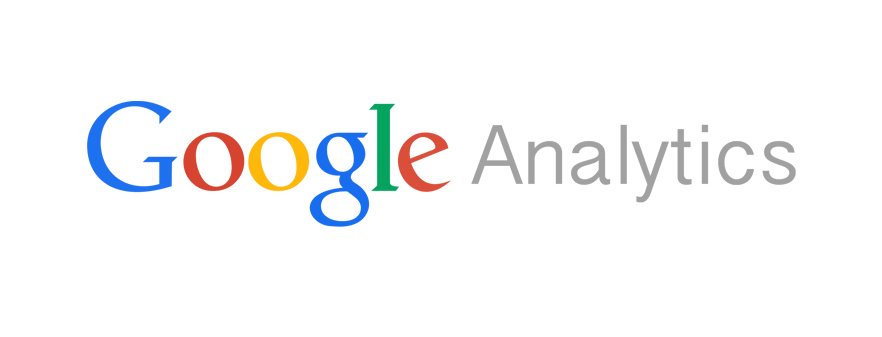How To Track Your Yahoo, Bing and Facebook PPC Ad Campaigns in Google Analytics

Whenever you run a PPC Ad Campaign, it is important that you track and optimize its business value. For Google Adwords, it is easy to use the automatically tagged URLs to track your campaigns in Google Analytics. For other PPC Ad Platforms, you will need to create your own custom tagged URLs for each landing page. (Related article: Google Adwords enhanced campaigns integrates PPC across device types). Fortunately, this is easy to do and in a matter of minutes you can be tracking all your different PPC Accounts in the same Google Analytics account. The key to tracking different PPC Ad Campaigns is Google's URL Builder. Using this handy tool, you can track the conversions and return on investment from your online advertising spending. To get started, here is how to use Google's URL Builder for the most common PPC Ad Platforms.
(Note: Tracking your PPC campaigns is only part of measuring ROI. You should also read our articles on How to Track Email Campaign Success with Google Analytics and how to Increase Your Conversion Rate Using Google Analytics Funnels.)
-
How To Track Your MSN adCenter PPC Campaigns
If you leave your MSN adCenter ad untagged, then your paid traffic will be indistinguishable from your organic traffic from MSN and Bing. To create custom tags for your Microsoft adCenter URLs, enter the information below into Google URL Builder:
- Campaign Source: bing
- Campaign Medium: cpc
- Campaign Term: {QueryString} (this is a custom tag that Microsoft Adcenter supports for tracking keywords )
- Campaign Content: {AdID} (this is another custom tag unique to Adcenter for individual ad tracking)
- Campaign Name: {OrderItemID} (this imports your Ad Group ID from Microsoft Adcenter or choose a custom campaign name) Plug this data into Google's URL Builder and you should get something like this: http://www.yourwebsite.com/?utm_source=bing&utm_medium=ppc&utm_term={QueryString}&utm_content={AdID}&utm_campaign={OrderItemID} Notice that the Google URL Builder may converts the "{" and "}" characters to character string "%7B" and "%7D". I'd recommend modifying the URL so that the "{" and "}" characters are intact. Now, login into your Microsoft Adcenter account and ad this custom URL to each individual ad as the landing page URL.
-
How To Track Your Yahoo Search Marketing PPC Campaigns
Tracking your Yahoo Search Marketing Ads is very similar to the previous example with Microsoft Adcenter. Again, what you need to do is create custom tags for your individual Yahoo Ad Campaigns:
- Campaign Source: yahoo
- Campaign Medium: cpc
- Campaign Term: {OVKEY} (Yahoo's custom tag for tracking keywords)
- Campaign Content: {OVADID} (Yahoo's custom tag for individual ad tracking)
- Campaign Name: {OVCAMPGID} (Yahoo's custom tag for campaign ID or choose a custom campaign name)
Plug this data into Google's URL Builder and you should get something like this: http://www.yourwebsite.com/?utm_source=yahoo&utm_medium=cpc&utm_term={OVKEY}&utm_content={OVADID}&utm_campaign={OVCAMPGID} Now you will need to verify that Yahoo's custom URL tagging (which only works with Yahoo! Web Analytics) is disabled by going to the Administration tab and clicking on Tracking URLs. Set Tracking URLs to OFF and save your changes. This will ensure that your URLs will not be double tagged. Next, in your Yahoo PPC campaign manager, you will need to enter this custom URL for each individual ad in your PPC campaign as the landing page URL.
-
How To Track Your Facebook Ad Campaigns
With Facebook's growing influence in online advertising, running PPC campaigns on the Facebook platform can be very lucrative for certain businesses. If you don't set up a custom URL for your Facebook Ads then they will appear in your Google Analytics data in a similar fashion to clicks from your Facebook Page or links posted on Facebook. That's not very helpful if you're trying to track return on investment (ROI), which is especially important for Facebook Ads which can be a goldmine for some businesses and a moneypit for others.
- Campaign Source: facebook
- Campaign Medium: cpc
- Campaign Term: (here can you place your targeted keywords)
- Campaign Content: (this can help you differentiate your ads if you're running multiple ads)
- Campaign Name: (choose a custom campaign name)
You completed URL will look something like this: http://www.yourwebsite.com/?utm_source=facebook&utm_medium=cpc&utm_term=... Next, enter this information as the landing page for your individual Facebook Ad ads and campaigns and you won't have to rely anymore on the mediocre analytics provided by Facebook Insights.
I highly recommend to customers that are currently using Google Adwords to try out these other platforms. While the search volumes are nowhere near Google's, the cost-per-click is often much lower and the advertising competition is less intense. This can make it much easier to convert your paid traffic spending into conversions that a solid return for each dollar spent. Now, with custom tracking you can see for yourself if these platforms are worth your advertising dollars by measuring your exact return on investment in Google Analytics.
Smartt offers a 2-day Google Analytics Success Course designed to help corporate marketing teams bring ROI-oriented data and actionable insights into the boardroom. You can learn more about it on our digital marketing training workshop.
Update: Google has released an Universal Analytics platform for tracking users across multiple devices. To learn more about it, check out our article How Marketers Can Benefit Significantly From Google's Universal Analytics Upgrade.


